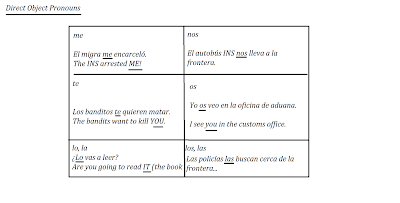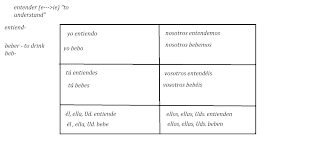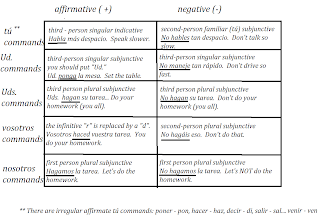Posts
Showing posts from December, 2010
Michael Vick quiere conseguir un perrito
- Get link
- X
- Other Apps
CA Hospital Sued over Recent English-Only Flap
- Get link
- X
- Other Apps
Vocabulario - Las Cosas en la Recámara (Things in the Bedroom)
- Get link
- X
- Other Apps



